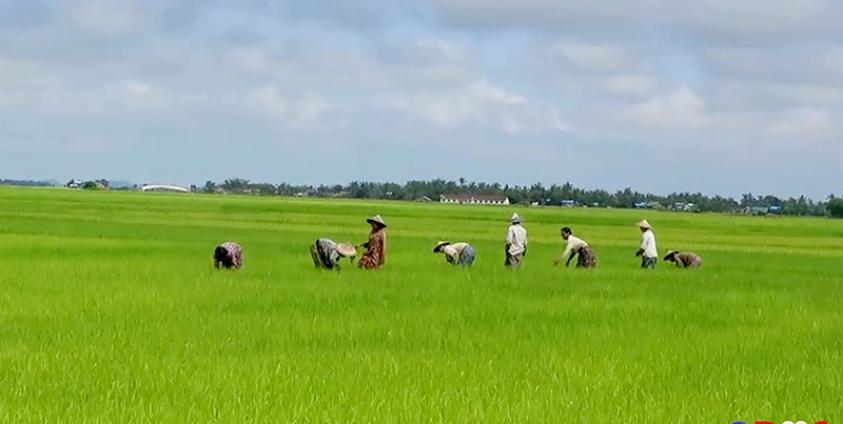The Arakan State Administration Council has distributed fertiliser to township agriculture offices so that farmers in Thandwe, Taungup, Gwa, Mrauk-U and Kyauktaw townships can buy at subsidised prices as the cost of fertiliser has skyrocketed over the past year.
The Arakan State military council distributed 6,000 bags of fertiliser to the agricultural offices in these townships and local farmers can purchase fertiliser at a price of just over K30,000 per bag, said Daw Hla Theingi, deputy director of the Arakan State Department of Agriculture.
“The local government has allocated 6,000 sacks of fertiliser to five townships so far. If farmers want to buy fertiliser, they can contact the office of the Department of Agriculture in their respective township. The local government has not been able to distribute fertiliser for the rest of the townships because the fertiliser plant shut down operations,” she told DMG.
At present, the going market rate for a bag of fertiliser is more than K90,000. With fuel prices also soaring in recent months, many farmers are scaling back cultivation significantly, or not planting at all under the unfavourable conditions.
U Kyaw Zan, chairman of the Arakan Farmers’ Union, said the high price of fertiliser meant tens of thousands of previously cultivated farmland in Arakan State went unplanted in 2021, a trend that he warned may continue this year.
“As the price of fertiliser has risen so much, the number of farmers may decrease this year as well. It would be good if the local government could sell [reduced price] fertiliser to farmers in the whole state, not just to farmers in five townships,” he added.
Ko Oo Soe Thein, a farmer from Tin Nyo village in Mrauk-U Township, said he was not aware that the government was offering to provide fertiliser to farmers at a cheaper price.
“We don’t know yet if the local government sells such [reduced price] fertiliser to farmers. If so, we will go to the office of the Department of Agriculture to learn about it,” he said.
Farmers and the general public have been struggling to make ends meet as the prices of fertiliser, fuel, and an assortment of basic commodities have risen sharply since the military coup in February 2021.








